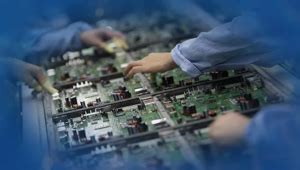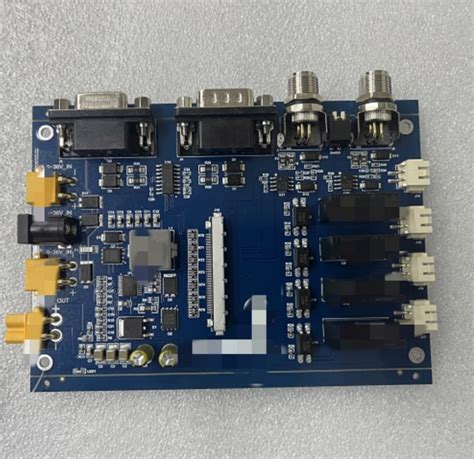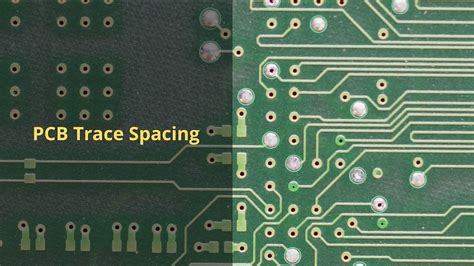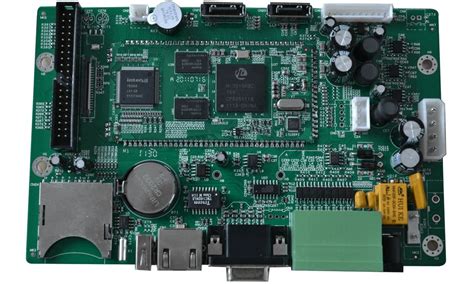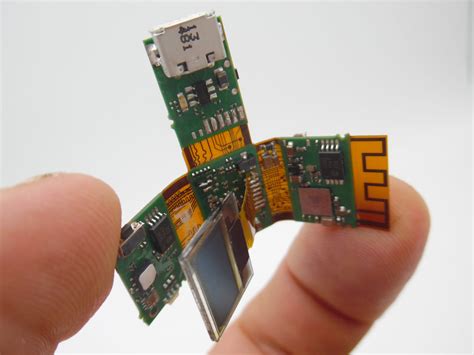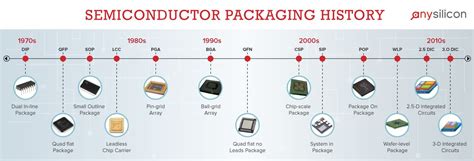Revolutionizing Production: Contract Manufacturing in Electronic Assembly
Key Takeaways
Contract manufacturing in electronic assembly, particularly in pcb assembly and pcba, has emerged as a pivotal approach for businesses seeking to optimize their production processes. By leveraging the expertise of specialized manufacturers, companies can not only enhance their production capabilities but also focus on their core competencies. The practice of outsourcing pcba allows businesses to benefit from reduced costs, faster time-to-market, and access to advanced technology and innovations that might be economically unfeasible to develop in-house. Moreover, collaboration with contract manufacturers can lead to significant enhancements in quality control and risk management, as these partners often implement robust systems that adhere to industry standards. As companies navigate the dynamic demands of the marketplace, the strategic use of contract manufacturing becomes essential for maintaining a competitive edge. Emphasizing scalability through these partnerships ensures businesses can swiftly adapt their production volumes in response to fluctuating market needs, thereby improving overall operational efficiency. This transformative trend continues to reshape the landscape of electronic assembly by driving both innovation and productivity.
Introduction to Contract Manufacturing in Electronic Assembly
Contract manufacturing has emerged as a pivotal solution in the world of electronic assembly, offering companies an avenue to optimize their production processes. By leveraging external manufacturers for PCB assembly and PCBA, businesses can focus on their core competencies while benefiting from the specialized expertise of contract partners. This approach allows for increased flexibility in production schedules and reduced operating costs, as firms can scale their manufacturing capabilities without the need for heavy investment in infrastructure. The shift towards contract manufacturing has been particularly pronounced in sectors where rapid technological advancements are common, making it crucial for companies to remain agile and responsive to market demands.
“Embracing contract manufacturing not only enhances operational efficiency but also opens the door to innovation in product development.”
Moreover, working with experienced contract manufacturers can lead to improved quality control, as these partners often employ advanced techniques and cutting-edge technologies that guarantee superior product outcomes. By outsourcing pcb assembly, businesses not only streamline their operations but also gain access to a wider array of resources, ensuring they stay competitive in a fast-evolving marketplace. Ultimately, adopting this manufacturing approach enables companies to allocate resources more effectively, respond swiftly to consumer needs, and foster a culture of continuous improvement that drives long-term success.
The Evolution of Electronic Assembly: A Shift to Contract Manufacturing
The landscape of electronic assembly has significantly shifted in recent years, primarily due to the rise of contract manufacturing. Historically, companies handled their own production processes, which often led to inefficiencies and limited scalability. With the growing complexity of products and the increasing demand for higher quality at lower costs, many organizations are turning to pcb assembly and pcba specialists. This transition not only enhances production capabilities but also allows businesses to focus on their core competencies such as design and marketing.
In embracing contract manufacturing, companies gain access to a wealth of expertise and advanced technologies that might not have been feasible in-house. The relationship between manufacturers and businesses is evolving into strategic partnerships that prioritize innovation. This collaboration results in the development of enhanced manufacturing processes that significantly improve turnaround times.
To illustrate this shift, let’s look at a comparative table showcasing traditional manufacturing versus contract manufacturing:
| Feature | Traditional Manufacturing | Contract Manufacturing |
|---|---|---|
| Control Over Production | High | Moderate |
| Focus Area | Limited to own products | Diverse product lines |
| Cost Efficiency | Often higher | Generally lower |
| Access to Expertise | Limited | Extensive |
| Scalability | Difficult | Easily scalable |
In summary, the shift towards contract manufacturing in the realm of electronic assembly fosters a more adaptable production environment. Companies leverage these partnerships for improved efficiency while ensuring they remain competitive amidst ever-evolving market demands. Emphasizing quality through specialized providers enhances not just productivity but also streamlines processes related to pcb assembly and pcba, further propelling businesses toward greater success in a dynamic landscape.
Key Benefits of Contract Manufacturing for Businesses
Contract manufacturing has increasingly become a vital component in the electronic assembly sector, particularly in relation to PCB assembly and PCBA. One of the primary advantages is cost efficiency; by outsourcing to specialized firms, businesses can significantly reduce overhead costs associated with production. This allows companies to focus resources on core competencies such as R&D and marketing, enhancing their overall competitive edge. Additionally, the access to advanced technology and skilled labor through contract manufacturers ensures high-quality production standards. The flexibility inherent in contract manufacturing enables businesses to scale operations according to market demand swiftly; this is particularly beneficial in the fast-paced landscape of electronic assembly where technology trends can shift rapidly. Furthermore, collaborative relationships with contract manufacturers often lead to innovative processes and improved lead times, making it crucial for companies seeking sustainability and growth in this dynamic industry.
Innovative Practices in Contract Manufacturing
In the realm of contract manufacturing, particularly in electronic assembly, businesses are witnessing a transformative shift towards innovative practices that enhance production capabilities. One such practice is the integration of advanced technology in PCB assembly processes. By employing automation and robotics, companies can significantly reduce assembly time while maintaining high standards of quality. This approach to PCBA not only minimizes human error but also increases the overall efficiency of production lines. Moreover, adopting agile methodologies allows manufacturers to adapt quickly to changing market demands, ensuring that they can meet customer needs promptly and effectively. Another noteworthy innovation is the use of data analytics for real-time monitoring of manufacturing processes. By analyzing production data, organizations can identify bottlenecks and inefficiencies, enabling them to optimize workflows continuously. Furthermore, strategic partnerships within the supply chain lead to better resource management and cost savings, all while fostering innovation through shared expertise. As businesses embrace these innovative practices, they position themselves to thrive in a competitive landscape, enhancing their ability to deliver high-quality electronic products rapidly and efficiently.
Enhancing Efficiency Through Strategic Partnerships
In the ever-evolving realm of contract manufacturing, forming strategic partnerships has become a cornerstone for enhancing efficiency in electronic assembly. By collaborating with specialized pcb assembly providers, companies can streamline their production processes, effectively optimizing their operations. This dynamic approach allows businesses to leverage the expertise of their partners, which often leads to improved quality in pcba (printed circuit board assembly) and faster turnaround times. Furthermore, these partnerships enable manufacturers to adapt quickly to shifts in market demand while minimizing the burden of in-house production complexities. Companies that embrace these collaborations can tap into innovative manufacturing techniques and technologies, ensuring they remain competitive in a fast-paced environment. Additionally, strategic alliances often lead to shared resources and reduced costs, ultimately fostering an ecosystem where both parties thrive. As such, this approach not only enhances operational efficiency but also paves the way for a more resilient production framework capable of meeting future challenges head-on.
Scalability: Meeting Market Demands with Contract Manufacturing
As the electronics industry continues to evolve, the need for scalability in production processes has never been more critical. Contract manufacturing plays a pivotal role in helping businesses adapt to shifting market demands, particularly in the realm of PCB assembly and PCBA. By leveraging the expertise of specialized manufacturers, companies can efficiently ramp up or scale down their production capabilities in response to new trends or consumer needs. This flexibility allows businesses to maintain quality while optimizing costs, ultimately resulting in improved profit margins.
Through strategic partnerships with contract manufacturers, organizations can access advanced technologies and innovative processes that facilitate rapid changes in production volume without compromising on the quality of their products. This adaptability is especially important given the fast-paced nature of technological advancements, where new products are continuously being developed. Moreover, the ability to quickly scale production aligns perfectly with just-in-time manufacturing practices that minimize inventory costs and reduce waste.
In a landscape characterized by heightened competition and evolving customer preferences, those who adopt contract manufacturing strategies are positioned to meet market demands effectively. This operational agility not only enhances output but also fosters long-term business sustainability as companies can respond promptly to new opportunities while keeping their focus on innovation and quality assurance in pcb assembly and pcba processes.
Case Studies: Success Stories in Contract Manufacturing
The world of contract manufacturing has produced numerous success stories, showcasing how companies leverage these strategic partnerships to enhance their operations. Take, for instance, a leading electronics company that faced challenges in scaling up its PCB assembly process to meet surging market demands. By outsourcing its PCBA needs to a specialized contract manufacturer, the company not only improved its production efficiency but also reduced lead times significantly. This partnership allowed for the integration of advanced technologies and best practices that would have been costly to implement in-house. Another notable example includes an emergent startup that sought to bring innovative electronic products to market quickly. By collaborating with a contract manufacturer skilled in electronic assembly, the startup was able to focus on R&D and product design while relying on the expertise of their partner for high-quality pcb assembly. These case studies illustrate the transformative impact of contract manufacturing, demonstrating how this approach facilitates innovation, enhances productivity, and ultimately contributes to a company’s competitive edge in an ever-evolving marketplace.
Future Trends in Electronic Assembly and Contract Manufacturing
The landscape of contract manufacturing in the realm of electronic assembly is undergoing rapid transformation, driven by advancements in technology and shifting market demands. As businesses seek to optimize their operations, the focus is increasingly on pcb assembly and pcba processes that enhance productivity while maintaining high-quality standards. This collaborative approach fosters a dynamic environment where companies can leverage specialized expertise from contract manufacturers to navigate complexities in production.
Moreover, the integration of automation and smart technologies is expected to redefine traditional pcb assembly methods, allowing for greater precision and reduced lead times. The rising trend of sustainability within manufacturing also prompts a shift towards more eco-friendly practices that can be incorporated into pcba solutions. Companies are not only striving for cost efficiency but also prioritizing strategic partnerships that empower them to stay responsive in a competitive market landscape.
As the industry evolves, being adaptable while embracing innovative technologies will be crucial for businesses that aim to lead in contract manufacturing. The future points towards a synergy between manufacturers’ capabilities and technological advancements, ensuring a streamlined approach toward high-efficiency production systems that cater to ever-changing consumer needs.
Conclusion
In conclusion, the landscape of contract manufacturing in electronic assembly has undergone significant transformation, showcasing remarkable adaptability and innovation. The integration of advanced technologies has not only streamlined pcb assembly processes but also enhanced the quality and reliability of pcba services. As businesses navigate an increasingly competitive environment, the strategic adoption of contract manufacturing allows for improved efficiency by leveraging expert knowledge and resources. This approach fosters a more responsive production model, enabling companies to scale operations effectively in response to dynamic market demands. Through collaborative partnerships, organizations can tap into specialized skills and innovative practices that enhance overall productivity while minimizing operational risks. As we move forward, the impact of these advancements will likely resonate throughout the industry, establishing a new standard for excellence in electronic assembly.
FAQs
What is contract manufacturing in electronic assembly?
Contract manufacturing in electronic assembly refers to outsourcing the production processes of electronic components to specialized firms. This includes the manufacturing of printed circuit boards (PCB) and related assemblies, known as PCBA.
How can contract manufacturing benefit my company?
Utilizing contract manufacturing allows companies to reduce costs, access advanced technologies, and enhance production capabilities. This approach ensures a more efficient and flexible response to market demand while focusing on core business functions.
What innovations are emerging in contract manufacturing?
Innovations such as automation, real-time data monitoring, and advanced material sourcing are shaping the future of contract manufacturing. These practices significantly improve the pcb assembly process, enhancing overall efficiency and quality.
How does strategic partnership enhance efficiency?
Strategic partnerships with experienced contract manufacturers enable businesses to leverage expertise and resources that may not be internally available. Such collaborations lead to improved workflow, reduced lead times, and better scalability of operations.
Can contract manufacturing keep up with market demands?
Absolutely. Contract manufacturers can quickly adjust production levels based on fluctuating market demands. Their inherent flexibility helps businesses remain agile in a competitive environment while ensuring that they meet customer expectations.

